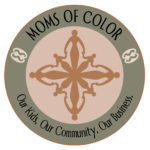
In a world that often attempts to categorize and confine us, Black women have emerged as forces of resilience, strength, and change. The duality of our existence – navigating between the desire for a “soft life” and the responsibility of being a “savage mother” – encapsulates the complexity of our roles and the profound impact we have on our communities.
The Soft Life: A Path to Self-Care and Fulfillment
The “soft life” is a concept that embraces self-care, personal fulfillment, and embracing life’s pleasures. It’s about finding joy in the simple things, indulging in our passions, and carving out spaces of serenity in a world that often demands so much from us. Taking time to relax, pamper ourselves, and enjoy the fruits of our labor is essential for mental, emotional, and physical well-being. The “soft life” allows us to recharge, replenish, and cultivate a deep sense of self-love.
The Savage Mother: Nurturing the Community Flame
The term “savage mother” doesn’t denote cruelty, but rather a fierce protector and nurturer. It encapsulates the strength required to nurture not only our immediate families but also our communities. Many Black women find themselves drawn to social causes, community leadership, and using their voices to effect positive change. Our history has taught us that we must stand up for justice, equality, and the well-being of our people. We embrace our roles as warriors, defending and lifting up those around us.
The Intersection of Purpose and Balance
For Black women, the challenge lies in finding balance between these two roles. We recognize that the pursuit of a “soft life” is not a luxury available to all, as our unique experiences often demand our attention beyond personal comforts. Our collective journey to overcome systemic injustices, break stereotypes, and uplift our communities is a formidable task.
Many Black women have a distinct purpose – a calling to help their communities, use their voices, and step into the fire of activism. This purpose drives us to sacrifice moments of leisure for moments of impact. But finding balance is crucial. Striking that equilibrium between advocating for change and taking care of our personal well-being ensures that we can sustain ourselves for the long haul.
Acknowledging the Path Ahead
As Black women, we have a lot of work to do within our communities. But this work shouldn’t come at the cost of our own happiness and fulfillment. We must acknowledge that self-care and personal joy are not indulgences, but necessities for our continued growth and effectiveness.
It’s important to remember that finding balance doesn’t mean compromising our purpose. It means recognizing that our ability to make a difference is amplified when we are at our best – physically, mentally, and emotionally. Taking time for ourselves doesn’t equate to neglecting our communities; it fortifies us for the challenges ahead.
In conclusion, the path of a Black woman is not linear – it’s beautifully intricate, a tapestry woven with threads of love, resilience, and purpose. Balancing the “soft life” and being a “savage mother” is not an easy feat, but it’s one that can lead to a more empowered and fulfilled existence. Let us continue to embrace both sides of our identity, knowing that our ability to create change in the world is deeply connected to our own well-being.
With Love, Lakischa Smith
Meet Lakischa Smith, a proud mother and a dedicated public health advocate. With a Bachelor’s from Dillard University and a Master’s in Public Health from Florida International University, she’s committed to sharing honest narratives about black motherhood. Lakischa believes in fostering sisterhood to combat the pervasive forces of white supremacy, and empowering African American women to be agents of change for future generations. She asserts that recognizing and addressing our community’s struggles is crucial, for healing is the key to moving forward. Armed with the power of education and a deep belief in collective action, Lakischa is determined to ensure that the issues impacting African American parenthood aren’t just seen—they’re addressed and resolved.

